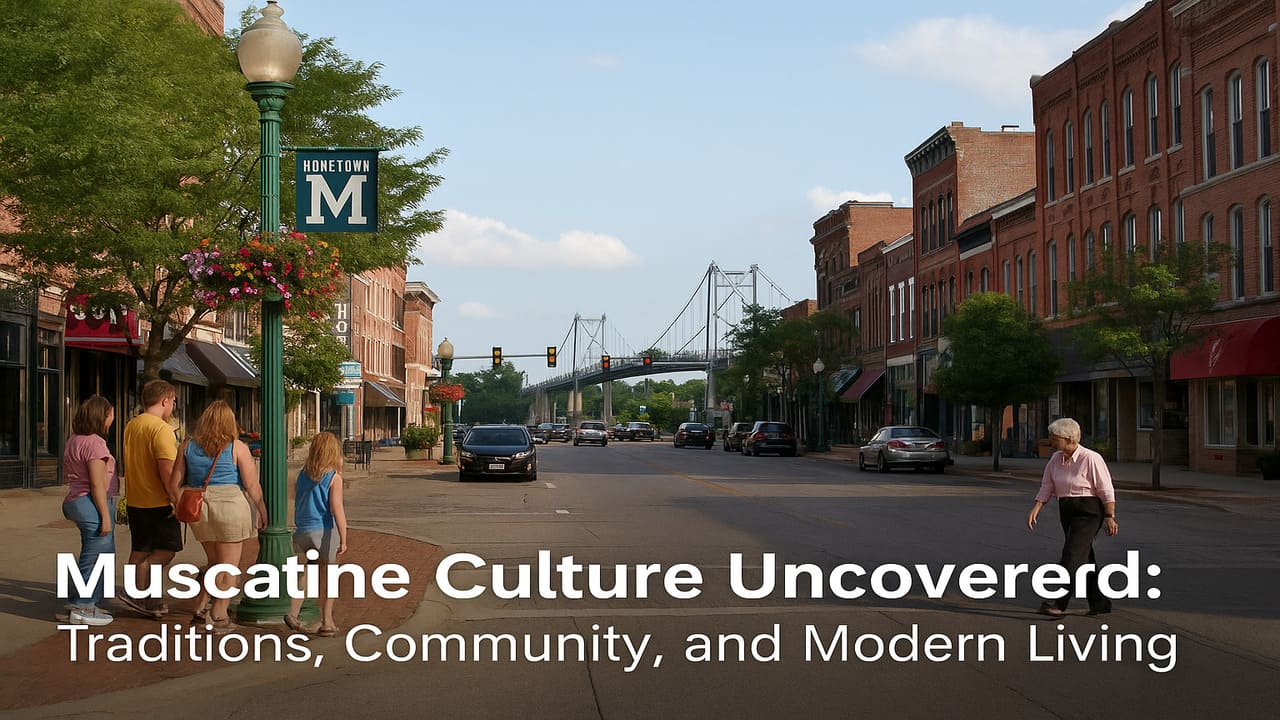
Meet Muscatine – Muscatine, often called the Pearl of the Mississippi, has a long-standing history that deeply influences its cultural identity. Once a global leader in pearl button manufacturing, the city developed a reputation for hard work, craftsmanship, and resilience. The factories that dotted the riverfront shaped not only the economy but also the values of the people who lived there. These roots in industry remain a point of pride for the community and form a backdrop for much of Muscatine Culture story.
Beyond industrial heritage, Muscatine’s location along the Mississippi River has long served as both a literal and symbolic bridge. The river brought traders, immigrants, and travelers, each contributing to the evolving identity of the city. Generations later, the traditions passed down from early settlers continue to resonate in the way Muscatine residents celebrate their history and maintain strong ties with the land and water around them.
Cultural traditions in Muscatine are not just historical artifacts; they remain living practices that shape daily interactions. Annual events such as art walks, riverfront festivals, and local parades showcase how traditions continue to be reinterpreted for modern audiences. These gatherings are more than entertainment they reinforce a shared identity and remind residents of the continuity between past and present.
Music, art, and culinary traditions also play a major role. From live jazz nights to folk art exhibits, Muscatine’s cultural calendar reflects both the preservation of long-held customs and the openness to new influences. Local foods, often inspired by farm-to-table values, remind people of the deep connection between community, land, and sustenance.
Also Read : Friendship and Flavor: Social Bonds at Muscatine’s Food and Farmers Markets
Community is at the heart of Muscatine’s cultural identity. Local organizations, clubs, and grassroots initiatives provide platforms for residents to come together, share ideas, and support one another. This sense of community is evident in volunteer work, neighborhood projects, and even small-scale efforts like supporting local businesses.
Churches, schools, and civic groups also anchor social life in Muscatine. These institutions have historically provided more than just services; they foster a sense of belonging and collective responsibility. Whether through Sunday gatherings, school sports events, or community fundraisers, people in Muscatine find ways to remain connected and strengthen the bonds that define their city.
While traditions remain central, Muscatine is also a city adapting to modern living. With new businesses, cultural venues, and technological growth, the community is embracing change while holding onto its heritage. Young professionals bring fresh energy, blending modern ideas with long-standing values of resilience and collaboration.
Modern living is also seen in how Muscatine Culture connects with the wider world. Digital platforms, global trade, and cultural exchanges ensure that the city remains part of larger conversations. Yet, even as global influences shape its future, Muscatine remains grounded in its identity as a river city with deep cultural roots.
For those visiting Muscatine, several cultural highlights stand out:
These highlights showcase how Muscatine balances its respect for history with its desire to create fresh cultural experiences for new generations.
Read More : Wellness Corners: Why Fitness and Spa Studios Belong in Shopping Malls
Instead of closing the conversation, it is worth asking how Muscatine’s culture will continue to evolve. The next generation holds the key to carrying traditions forward while embracing innovation. Education, creative industries, and inclusive community initiatives will play pivotal roles in shaping what Muscatine becomes.
The balance between honoring history and adapting to change is delicate but essential. Muscatine’s story proves that culture is never static; it is a living, breathing force that adapts with the people who nurture it. In this sense, Muscatine is not just preserving its traditions but continuously rewriting them in ways that keep the community vibrant, resilient, and connected to the wider world.